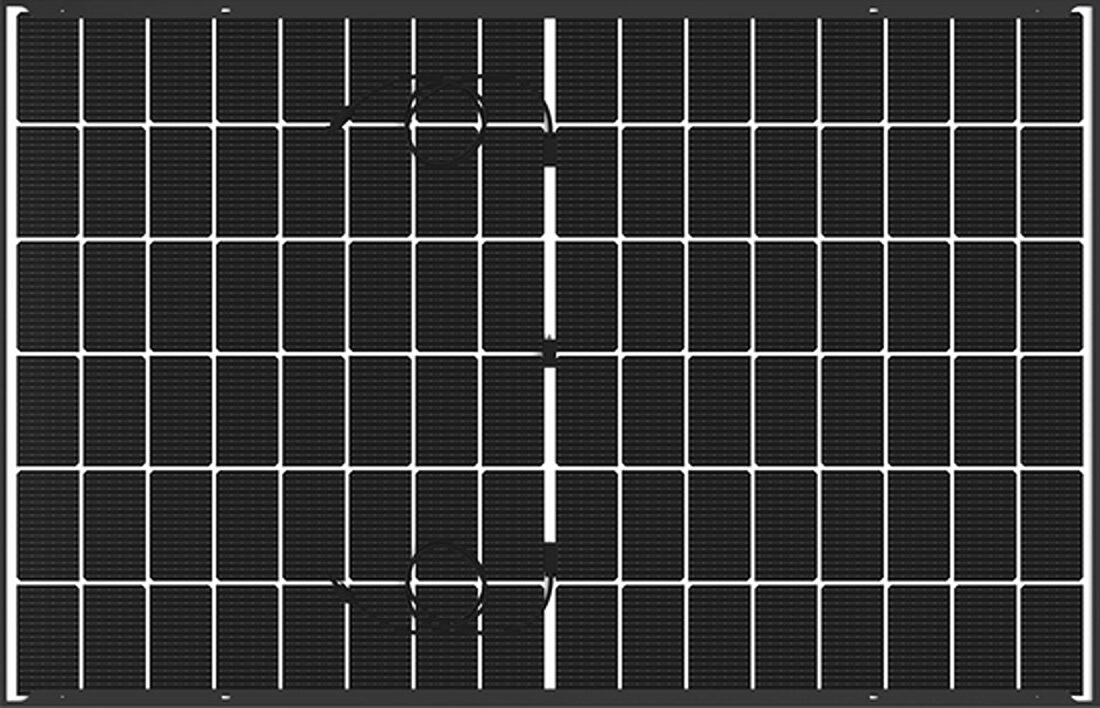Sharp has unveiled new n-type monocrystalline bifacial solar panels based on tunnel oxide passivated contact (TOPCon) cell technology.
The modules feature 96 half-cut solar cells based on G12 wafers and a 16-busbar design. They also feature a power conversion efficiency of up to 22.52% and a power output of 430 to 450 W.
“The bifacial NBJG445R and NBJG450R modules have a white coating on the backsheet between the cells which increases efficiency through light reflection,” the company said referring to the different models of the series. “In the NBJG435B and NBJG440B modules, the inter-cell spaces are black to enable an elegant, consistent black product design.”
The new panels measure 1,762 mm x 1,134 mm x 30 mm and weigh 25.0 kg.
The IEC61215- and IEC61730-certified products have an operating temperature coefficient of -0.29% per C. Their bifaciality factor is reportedly over 80%.
“The two-sided glass coating on the modules provides increased stability and optimum protection against external influences such as moisture, temperature fluctuations and mechanical stress. The modules have been awarded IEC seals in recognition of their safety, quality and longevity,” the company said in a statement. “The modules have been subjected to strict tests in order to meet international standards and withstand extreme conditions and have successfully passed the tests for ammonia, salt mist, sand and PID resistance.”
The company offers a 30-year linear power output guarantee and a 25-year product guarantee. The 30-year end power output is guaranteed to be no less than 87.5% of the nominal output power.
This content is protected by copyright and may not be reused. If you want to cooperate with us and would like to reuse some of our content, please contact: editors@pv-magazine.com.




By submitting this form you agree to pv magazine using your data for the purposes of publishing your comment.
Your personal data will only be disclosed or otherwise transmitted to third parties for the purposes of spam filtering or if this is necessary for technical maintenance of the website. Any other transfer to third parties will not take place unless this is justified on the basis of applicable data protection regulations or if pv magazine is legally obliged to do so.
You may revoke this consent at any time with effect for the future, in which case your personal data will be deleted immediately. Otherwise, your data will be deleted if pv magazine has processed your request or the purpose of data storage is fulfilled.
Further information on data privacy can be found in our Data Protection Policy.